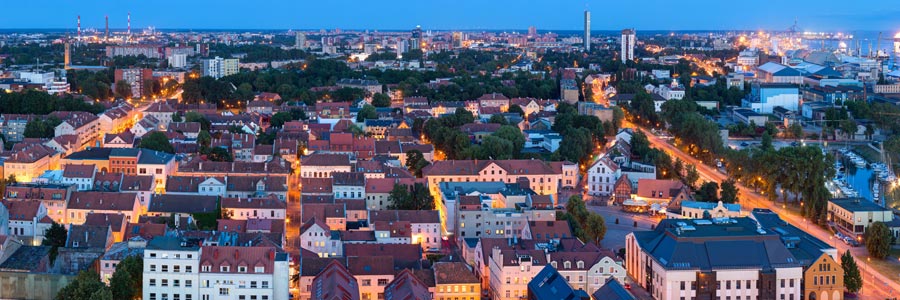
MSP summer school 2016
BONUS BALTSPACE with additional funding from VASAB is organising a summer school on trans-boundary Maritime Spatial Plannig (MSP) in the Baltic Sea Region. It will take place in Klaipeda, Lithuania from 29 August to 2 September 2016.
-
Scope and aims
The Baltic Sea Region (BSR) can in many respects be seen as a progressive region in terms of developing Marine Spatial Planning (MSP) aimed at sustainable use of marine space and resources. Not the least the work and collaboration of VASAB and HELCOM to develop regional policies for territorial development and good environmental status stand out as positive examples in an international comparison. Still, despite development of region-wide MSP principles and high commitments and progress to implement national MSP, several significant ‘integration’ challenges remain. In particular, trans-boundary integration – across national borders, among administrative levels within individual countries and across the land-sea divide – has been identified as a fundamental challenge.
The overarching aims of this course are to analyse how trans-boundary integration challenges play out in various MSP situations, and to explore if and how various science-based approaches and tools can be adapted to address these challenges. Trans-boundary integration in practice will also require context-specific considerations and integration of multiple policies, sectors, stakeholders and knowledges.
The course builds on the international BONUS BALTSPACE project that aims to provide science-based approaches and tools to clarify and improve the capacity of MSP in the BSR. Additionally, invited internationally renowned MSP researchers and experienced practitioners, will provide state-of-art insights from both the BSR and other marine regions in Europe.
Specific course aims:- To provide a state-of-art update on the academic discourse on and experience of trans-boundary MSP.
- To provide insights into current trans-boundary MSP challenges and practices and opportunities in the BSR and in other European marine regions.
- To provide training and reflection on science-based tools and approaches and their potential application to address trans-boundary integration in MSP.
- To provide possibilities to expand networks with other professionals and academics engaged in MSP research and practice in the BSR and elsewhere.
-
Tentative course schedule
29 Aug 30 Aug 31 Aug 1 Sept 2 Sept 08:30 Lecture: Trans-boundary challenges Lecture: Approaches and tools Training on BALTSPACE tools and approaches Group project 10:00 Break for coffee / refreshments 10:30 Student presentations Lecture: invited expert(s) – practitioner perspectives Training on BALTSPACE tools and approaches Seminar: project presentations and discussions 12:00 Lunch break 13:00 Course introduction and introduction to MSP in the BSR Introduction and start-up of group projects Group project Group project Field trip / study visit 15:30 Break for coffee / refreshments 16:00 Student presentations Lecture: invited expert(s) Group project Group project Field trip / study visit 17:30 Dinner break 19:30 Lecture: invited expert(s) / Get-together social event Group work / own time Group meetings with advisors Group meetings with advisors Final course dinner / party -
Targeted participants
The course is open to a maximum of 15 participants from the Baltic Sea region and elsewhere in Europe. The minimum entry requirement for course admission is an undergraduate degree in a MSP relevant discipline. The course will be given in English. Documented skills in academic communication in English is therefore a requirement. Priority is given to PhD students, as well as to early-career professionals in relevant fields (e.g. from national authorities, departments, NGOs, the maritime sector etc.). Priority in the selection process will be given to applicants with at least 1-year work/research experience on topics relating to MSP and marine governance in the Baltic Sea region.
-
Practicalities and costs
There is no course fee. Course materials, accommodation, lunches and study visits during the course are all covered by the organizers. Costs for other meals (i.e. breakfast and dinner) will be at the individual student’s own expense.
Travel costs have to be covered by course participants. There is, however, a possibility to apply for a travel grant from the organizer to partly cover travel costs.
-
How to apply
The application should include:
- A short CV (1-2 pages) including contact information, relevant academic and professional experience, degrees, positions etc. The CV should also indicate activities, products and/or personal references that can verify English competency. Please confirm with your signature that the information in the CV is correct.
- A letter (ca 1 page) that describes your interests, experiences and expertise, as well as motivates why you should be accepted to the course.
- If you are applying for a travel grant, please provide a motivation for this including a cost estimate.
The application should be send by mail to This email address is being protected from spambots. You need JavaScript enabled to view it.
Application deadline is May 13, 2016
Applicants will be notified of the the selection committee’s decision by May 27, 2016.
Please note that accepted students will be asked to submit short written reflections on MSP opportunities and challenges prior to the start of the course. More information on this will be sent together with the notification of acceptance.
-
BONUS BALTCOAST summer school
The parallel BONUS project BALTCOAST will host another summer school in Klaipeda about the "System Approach Framework (SAF) for Coastal Research and Management" right before the BONUS BALTSPACE summer school. Read more about the BONUS BALTCOAST summer school here.
-
Summer school report
Download the summer school report here.


